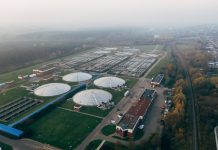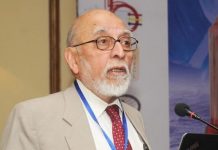Dr. Jitendra Singh, union minister of state for science and technology, praised Hyderabad’s CSIR institutes for their pivotal contributions to drug discovery, genetic diagnostics, and the development of cost-effective Active Pharmaceutical Ingredients (APIs). The minister noted the significant progress achieved over the last decade.
Premier CSIR Institutes Present Breakthroughs
Directors of three key CSIR laboratories – CSIR-Indian Institute of Chemical Technology (CSIR-IICT), CSIR-National Geophysical Research Institute (CSIR-NGRI), and CSIR-Centre for Cellular and Molecular Biology (CSIR-CCMB) – presented recent accomplishments and scientific milestones during the meeting.
CSIR-IICT: Advancing Pharma, Agrochemicals, and Green Technologies
Dr. D. Srinivasa Reddy, Director of CSIR Institutes, showcased the institute’s leading role in strengthening India’s chemical and pharmaceutical sectors. He highlighted major developments in catalysis, which have resulted in novel catalysts used for hydrogenation, oxidation, and polymerization in industrial applications.
Moreover, the institute developed safer and more effective agrochemicals, as well as compostable plastics in collaboration with GreenWorksBio. In partnership with Gujarat Alkalies and Chemicals Limited (GACL), CSIR-IICT also contributed to the indigenous development of Hydrazine Hydrate.
In the domain of sustainable technologies, Dr. Reddy spotlighted the Anaerobic Gas Lift Reactor (AGR), which efficiently converts biodegradable waste into biogas and bio-manure – demonstrating the institute’s strong focus on circular economy solutions.
CSIR-CCMB: Leading Genetic Diagnostics and Biotech Innovation
Dr. Vinay Nandicoori, Director of CSIR-CCMB, elaborated on the institute’s achievements in molecular biology and biotechnology. He emphasized that CCMB was the first Indian institute to develop DNA fingerprinting technology, revolutionizing forensic investigations in the country.
During the COVID-19 pandemic, CCMB swiftly developed indigenous diagnostic kits and advanced surveillance systems, and made significant strides in mRNA vaccine technology. Dr. Nandicoori also detailed the institute’s work on sickle cell anemia, including the creation of a highly sensitive, low-cost diagnostic kit under the National Sickle Cell Elimination Mission.
Additionally, CCMB launched India’s first rare disease registry and continues to research diseases like tuberculosis and encephalitis. Through its Atal Incubation Centre (AIC-CCMB), the institute has supported over 160 startups working in healthcare, agriculture, and environmental sustainability.
In conservation science, CCMB is studying the genetic diversity of endangered species, including tigers and olive ridley turtles, and supporting wildlife forensics to combat poaching and illegal trade. Dr. Nandicoori emphasized the institute’s unique ability to merge deep scientific research with real-world societal benefits.
CSIR-NGRI: Strengthening Earthquake Preparedness and Energy Security
Dr. Prakash Kumar, Director of CSIR-NGRI, presented the institute’s recent breakthroughs in geoscience and earth system research. He highlighted the development of India’s first strain map to assess seismic vulnerability in the Himalayan and Indo-Gangetic regions – an essential tool for national disaster preparedness.
NGRI is also spearheading deep seismic profiling to decode the crustal structure of central India, aiding both tectonic research and mineral exploration. Furthermore, the institute’s work in geothermal energy—particularly in Ladakh and Chhattisgarh—has opened promising avenues for clean and renewable energy.
Minister Emphasizes Science for National Development
Dr. Jitendra Singh commended the three institutes for their strategic contributions to India’s science and technology landscape. He emphasized the critical role of science-based solutions in solving societal challenges and accelerating India’s journey toward a self-reliant, knowledge-driven economy.
As reported by pib.gov.in, he concluded by stating that Hyderabad has evolved into a dynamic hub of scientific research, innovation, and entrepreneurship, reinforcing the city’s status as a national leader in scientific excellence.

































